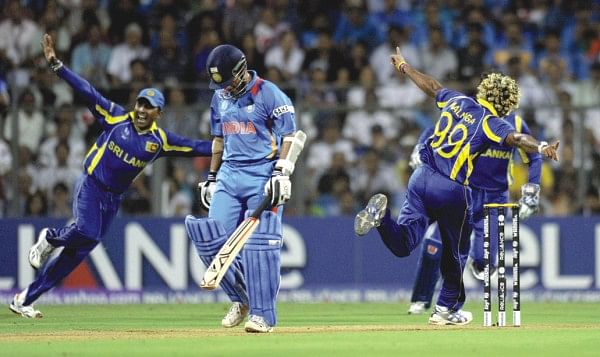| Home - Back Issues - The Team - Contact Us |
 |
| Volume 10 |Issue 15 | April 16, 2011 | |
|
|
Letters Eighth wage board award for Newspaper industry The Newspaper industry is an important sector in our country and unfortunately it is one of the most neglected one. “Journalists are the conscience of the nation” and without honest and skilled journalists this industry wouldn't be able to survive. The current salary structure of the newspaper industry is not time befitting. The long cherished eighth wage board award is a must for the Newspapers and news agencies. Though the salary of the newspaper employees seemed handsome a decade ago, it seems far from lucrative now, especially after awarding the government service holders the seventh pay scale. According to experts there is huge anomalies between the government's seventh pay scale and the seventh wage board award of newspaper industry. This industry received its seventh wage board award in 2008, after thirteen years from the fifth wage board award, whereas this award was supposed to be given every five years (maximum). The sixth wage board award, given by the caretaker government, was rejected by the journalist and non-journalist union as it barely met the demands of the employees. Though the present government awarded the industry with the seventh wage board, it still failed to fulfil their demands. It is a matter of shame and sorrow that none of the wage board award came smoothly without demonstration. Journalists always write and fight for the benefits and rights of others but no one came forth to fight or see their agony and suffering. The journalists and the newspaper employees are respected people in our society. Despite their low income, they aspire to live an honest life. But with the increasing expense of livelihood, it is becoming more and more difficult for these people to run their family. The government should immediately announce eighth wage board award without any plea, otherwise the industry better knows what they have to do. Mohammed Jashim Uddin Stop smoking in public places
Hossain Ahmed A true friend of helpless people When nobody was there to effectively help out the impoverished people of Bangladesh, Dr Yunus came up with the idea of micro-credit policy which brought new hope to the poor. The policy has been saving the lives of millions since it's in operation. Dr Yunus's Grameen Bank has always been beside the poverty-stricken people, especially in crucial times and has acted as a true friend of these 'living below the poverty line' citizens. The opportunities he created, provided the poor people of Bangladesh to earn their daily bread and educate their children through micro-credit loans. If I am not mistaken, there is not a single government bank that renders student loans to help poor people get education. Now Bangladesh Bank (BB) is after this Nobel laureate for his conservative initiatives to eradicate poverty and hunger from this country. It's a shame for a nation like Bangladesh. Hasnat, AIUB South Asian Domina-nce in the World Cup Cricket 2011 India, with their World Cup glory for the second time, leads the way to mark an era of South Asian dominance in cricket in the upcoming years. With their superior performance in the World Cup Cricket (CWC) 2011, South Asian teams clearly showed their dominance in world cricket. For the last one decade or so the Australian team reigned over world cricket. They were unbeaten champions of the previous two versions of world cup and were unbeaten for the last 36 world cup matches. But the mighty Australia was beaten twice in this world cup in the hands of South Asian power house India and Pakistan. It was only the starting of the South Asian dominance in CWC 2011. The CWC 2011 ended with a final between two South Asian teams- Sri Lanka and India and three of the four semifinalists being from this part of the world. Many critics said that Bangladesh did not perform well in this World Cup as they were unable to make it to the quarter-final. But I personally believe that it is not a complete failure. The critics have to consider the fact that Bangladesh was placed in a group which was termed as group of death. Bangladesh fought well with the mighty Indian side and their performance was really electrifying with the English side. Only the disastrous performance with the West Indian team cost them in the quarter-final. Nidhiram Sardar
Submission Guideline: Letters to the Editor, Star Diary and Write to Mita, with the writer's name and address, should be within 200 words. All articles should be within 1,200 words. A cover letter is not necessary, but every write-up should include the writer's name, phone number and email address (if any). While The Star welcomes unsolicited articles and photographs, it cannot accept the responsibility of their loss or damage. The Star does not return unsolicited articles and photos. Response time for unsolicited write-ups ranges from three weeks to two months. All articles submitted are subject to editing for reasons of space and clarity.
Copyright (R) thedailystar.net 2011 |
 T
T